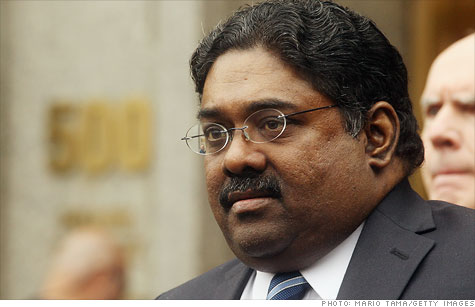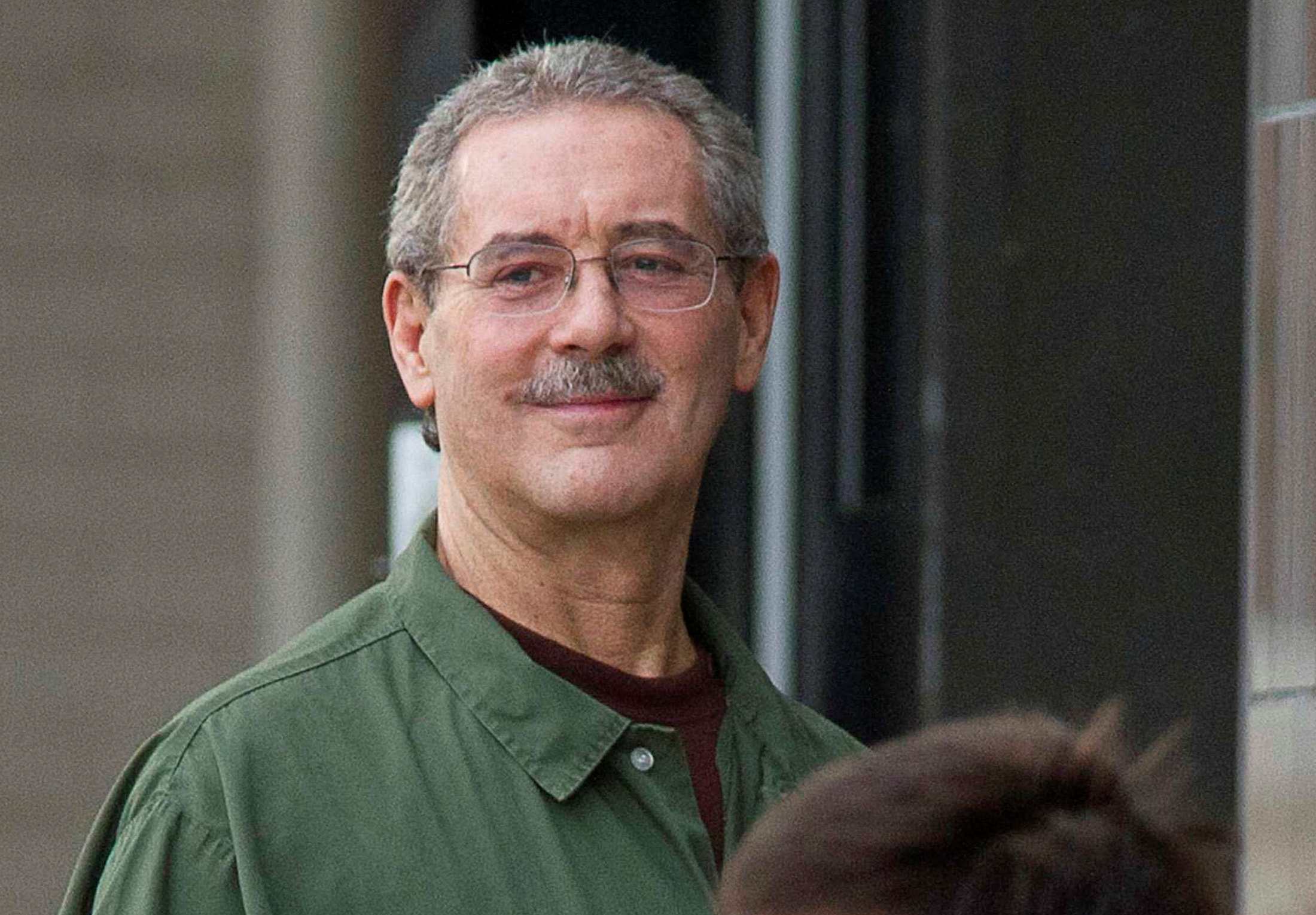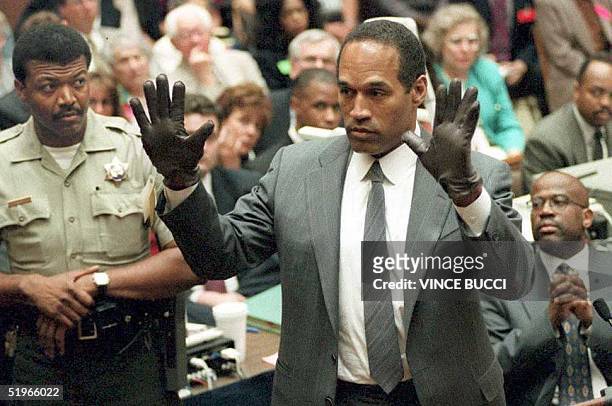.png)
When most people think about bail bonds, they imagine amounts in the thousands or tens of thousands of dollars. But for high-profile defendants with significant wealth or those accused of particularly serious crimes, bail amounts can reach staggering heights that seem almost incomprehensible. From billionaire real estate heirs to legendary music producers, these cases reveal how the American justice system uses bail to balance flight risk against the constitutional right to freedom before trial.
Let's explore eleven of the most shocking bail bond amounts in U.S. history—cases that captured headlines, sparked national debates, and demonstrated just how expensive the price of freedom can be.
1. Robert Durst - $3 Billion (Record-Setting)

The Case: Real estate heir Robert Durst holds the record for the highest bail amount ever set in American criminal history. In 2016, Louisiana authorities arrested Durst on first-degree murder charges in connection with the death of his longtime friend Susan Berman, who was killed execution-style at her Beverly Hills home in 2000.
Why So High? Prosecutors argued that Durst was an extreme flight risk given his substantial wealth (heir to a New York real estate empire worth billions), his history of fleeing prosecution, and credible evidence he had previously jumped bail. The judge initially set bail at an unprecedented $3 billion.
The Outcome: Durst's defense attorneys successfully argued the bail was unconstitutionally excessive and effectively denied him his right to pretrial release. A court reduced the amount to $5 million, which Durst posted, securing his temporary freedom. However, he was ultimately convicted of first-degree murder in September 2021 and sentenced to life in prison without the possibility of parole. Durst died in custody on January 10, 2022, at age 78, while serving his sentence.
Historical Significance: The $3 billion figure remains unmatched in criminal bail history, illustrating how courts attempt to ensure wealthy defendants appear for trial when traditional bail amounts would be meaningless to them.
2. Kim Dotcom - Denied Bail Initially (Internet Piracy Empire)

The Case: On January 20, 2012, over 70 New Zealand police tactical officers armed with assault rifles raided a $30 million mansion in Coatesville, New Zealand, dramatically arresting Kim Dotcom (born Kim Schmitz), the flamboyant founder and CEO of Megaupload—one of the world's largest file-sharing websites. The raid was conducted at the request of the FBI and U.S. Department of Justice, who accused Dotcom and three associates of orchestrating what they called a "Mega Conspiracy."
The Charges: U.S. prosecutors alleged that Megaupload facilitated massive copyright infringement, generating over $175 million in illegal profits through advertising revenue and premium memberships while causing an estimated $500 million in damages to copyright holders. At its peak in 2011, Megaupload claimed 50 million daily users and accounted for 4% of all global internet traffic, making it the 13th most popular website on Earth.
The Dramatic Arrest: During the raid, police had to breach a heavily fortified panic room where Dotcom had barricaded himself. Authorities seized guns, millions of dollars in cash, nearly $5 million worth of luxury cars (including rare Ferraris and Mercedes), artwork, and froze assets worth approximately $17 million. The raid was deliberately timed to occur during Dotcom's birthday celebration.
The Initial Bail Decision: Days after his arrest, an Auckland judge deemed Dotcom an extreme flight risk and denied him bail, citing his multiple passports (Finnish and German), 59 credit and bank cards under 13 different names, substantial international wealth, and weak ties to New Zealand despite his residency there.
Bail Granted After Appeal: After spending a month behind bars, Dotcom successfully appealed the bail denial. On February 22, 2012, District Judge Nevin Dawson ruled that flight risk concerns had diminished after Dotcom's assets were seized and frozen worldwide. The judge noted that Dotcom would be "abandoning his pregnant wife and three young children" and "living life as a fugitive" if he fled, and that he employed over 50 staff in New Zealand. Dotcom was released on strict bail conditions.
Bail Conditions: Under the terms of his release, Dotcom was placed under house arrest with 24/7 electronic monitoring at his $18 million, 5.3-acre rented estate. He was only permitted to leave for court appearances, pre-approved medical appointments, or meetings with his legal team.
The Legal Marathon: What followed was one of the longest extradition battles in modern history—spanning over 13 years and continuing into 2025. Dotcom fought extradition through every level of New Zealand's court system:
- In 2017, a New Zealand court ruled he could be extradited to the U.S. on fraud charges
- In 2021, New Zealand's Supreme Court ruled that Dotcom and two co-defendants could be surrendered to the U.S.
- In August 2024, New Zealand Justice Minister Paul Goldsmith signed an extradition order
- In September 2025, the High Court rejected Dotcom's latest judicial review challenging the extradition decision
His Former Partners' Fate: Two of Dotcom's business partners, Mathias Ortmann and Bram van der Kolk, accepted plea deals in June 2023. They pleaded guilty to being part of a criminal group and causing artists to lose money by deception under New Zealand law. In exchange, U.S. extradition efforts against them were dropped, and they were sentenced to two and a half years in New Zealand prisons. A fourth partner, Finn Batato, had extradition charges dropped and returned to Germany, where he died from cancer in 2022.
Health Complications: In November 2024, Dotcom suffered a stroke. As of mid-2025, he reported making "good progress" in recovery but continued to experience speech and memory impairments.
The Defense: Dotcom has consistently maintained his innocence, arguing that Megaupload was a legitimate cloud storage service unfairly targeted because Hollywood studios saw online file-sharing as a threat to their business model. He points out that he's never even visited the United States and notes that many actions legal in New Zealand are being prosecuted as crimes by U.S. authorities.
Current Status: As of October 2025, Dotcom remains in New Zealand while his legal team explores final appeal options. If extradited and convicted in the United States, he faces up to 20 years in prison on charges of racketeering, conspiracy to commit copyright infringement, conspiracy to commit money laundering, and wire fraud.
Cultural Impact: The Dotcom case became a lightning rod for debates about internet freedom, digital copyright law, international jurisdiction, the power of U.S. law enforcement to pursue foreign nationals abroad, and whether cloud storage services can be held liable for user-uploaded content. His story has been featured in documentaries, books, and countless news articles worldwide.
A Colorful Figure: Beyond his legal troubles, Dotcom became known for his extravagant lifestyle (owning a private helicopter, luxury car collection, and living in a mansion), his political activism (founding New Zealand's Internet Party to promote digital rights), and his surprising gaming prowess—at one point being ranked the world's number-one Call of Duty: Modern Warfare 3 player out of 15 million online competitors.
3. Jeffrey Epstein - $100 Million (High-Profile Sex Trafficking)

The Case: In July 2019, federal prosecutors arrested wealthy financier Jeffrey Epstein on charges of sex trafficking dozens of underage girls at his Manhattan mansion and his estate in Palm Beach, Florida.
Why So High? Prosecutors emphasized Epstein's immense wealth (estimated in the hundreds of millions), his access to a private jet, his history of international travel, multiple passports, and the severity of the charges involving minors. The $100 million bail reflected both the heinous nature of the allegations and the significant flight risk he posed.
The Collateral: To secure the proposed bond, Epstein would have been required to put up $77 million in collateral, including his $56 million Manhattan townhouse—one of the largest private residences in New York City.
The Outcome: Ultimately, a federal judge denied Epstein bail entirely, keeping him in custody at the Metropolitan Correctional Center in Manhattan. On August 10, 2019, before his trial could take place, Epstein was found dead in his cell in what was ruled a suicide, though the circumstances remain controversial and have fueled numerous conspiracy theories.
Cultural Impact: The Epstein case brought unprecedented attention to how wealth and power can shield criminals from accountability and sparked international discussions about human trafficking, abuse of minors, and corruption within elite circles.
4. Raj Rajaratnam - $100 Million (Insider Trading Kingpin)

The Case: In October 2009, the FBI arrested hedge fund manager Raj Rajaratnam, founder of the Galleon Group, on insider trading charges that eventually encompassed 14 counts of conspiracy and securities fraud.
Why So High? At the time of his arrest, Rajaratnam's hedge fund managed approximately $3.7 billion in assets, and he was personally worth hundreds of millions of dollars. Prosecutors successfully argued that anything less than $100 million would be insufficient to ensure his appearance at trial.
The Collateral: The bail was secured by $20 million in cash and $80 million in assets, including a luxurious Manhattan penthouse and a sprawling mansion in Rhode Island.
The Outcome: Rajaratnam was convicted on all 14 counts in May 2011 and sentenced to 11 years in federal prison—one of the longest sentences ever imposed for insider trading at that time. He served seven years before being released in 2019. The government seized approximately $63.8 million in forfeiture and penalties.
Market Impact: The Rajaratnam case marked one of the most significant crackdowns on insider trading in Wall Street history and led to enhanced scrutiny of hedge fund trading practices.
5. R. Allen Stanford - $100 Million (Massive Ponzi Scheme)

The Case: Texas financier R. Allen Stanford was arrested in June 2009 on charges of orchestrating a massive $8 billion Ponzi scheme through his company, Stanford Financial Group, which sold fraudulent certificates of deposit to investors worldwide.
Why So High? Stanford's extensive international connections, particularly in the Caribbean where his bank was based in Antigua, made him an enormous flight risk. He owned a private island, had access to private jets, and maintained residences in multiple countries.
The Collateral: The $100 million bond was to be secured by Stanford's yacht, multiple properties in the United States and Antigua, and other valuable assets—most of which were later seized by authorities.
The Outcome: Despite posting bail initially, Stanford was eventually denied release and remained in custody throughout his trial. In March 2012, he was convicted on 13 counts of fraud and sentenced to 110 years in federal prison. He is currently incarcerated and maintains his innocence. Victims have recovered only a small fraction of their losses through forfeiture proceedings.
6. Bernard Madoff - $10 Million (History's Largest Ponzi Scheme)

The Case: On December 11, 2008, federal agents arrested investment advisor Bernard "Bernie" Madoff for running the largest Ponzi scheme in history—a fraud that spanned decades and destroyed approximately $65 billion in paper wealth for thousands of investors, including charities, retirees, and even Holocaust survivors.
Why This Amount? While $10 million seems modest compared to others on this list, it was one of the largest bail amounts on record at the time. Madoff's age (70 at the time of arrest), his longstanding ties to the New York community, and initial cooperation led judges to believe he wouldn't flee.
The Collateral: Bail was secured by Madoff's $7 million Manhattan penthouse on the Upper East Side and several properties in Florida and New York worth an estimated $10 million total.
What Happened: After posting bail, Madoff was placed under 24-hour house arrest with electronic monitoring. However, prosecutors grew concerned he might flee or harm himself. In March 2009, Judge Denny Chin revoked Madoff's bail, citing his age, wealth, and the likelihood he would spend the rest of his life in prison, making him a flight risk.
The Sentence: Madoff pleaded guilty to 11 felony counts and received the maximum sentence of 150 years in federal prison. He died behind bars at age 82 on April 14, 2021. His scheme devastated thousands of lives and exposed major regulatory failures at the Securities and Exchange Commission.
7. Michael Jackson - $3 Million (Pop Icon Under Scrutiny)

The Case: In November 2003, police arrested pop superstar Michael Jackson on charges of child molestation involving a 13-year-old boy at his Neverland Ranch in California.
Why So High? The $3 million bail reflected both the serious nature of the charges and Jackson's immense wealth and international fame. While he had deep roots in California, prosecutors worried his global celebrity status and financial resources could facilitate an escape to a non-extradition country.
The Collateral: Jackson secured his bail using several properties throughout California, including portions of his beloved Neverland Ranch.
The Outcome: After a five-month trial that garnered worldwide media attention, a jury acquitted Jackson of all charges in June 2005. The trial took an enormous emotional and financial toll on Jackson. He spent his final years living abroad, primarily in Bahrain and Ireland, before returning to the United States to prepare for a comeback tour.
Tragic End: On June 25, 2009, Michael Jackson died at age 50 from acute propofol intoxication—a powerful anesthetic administered by his personal physician, Dr. Conrad Murray. His death was ruled a homicide, and Murray was convicted of involuntary manslaughter, serving two years in prison.
8. Phil Spector - $1 Million (Music Legend's Dark Turn)

The Case: In February 2003, legendary music producer Phil Spector—known for his revolutionary "Wall of Sound" recording technique and work with The Beatles, The Ronettes, and countless other artists—was arrested for the murder of actress Lana Clarkson at his Alhambra, California mansion.
Why $1 Million? At the time, a $1 million bail was considered extraordinarily high. Spector was a wealthy, internationally known figure in the music industry, but he also had strong ties to Southern California where he had lived and worked for decades.
The Collateral: The bond was secured by $1 million in assets, including several properties Spector owned throughout California.
The Outcome: Spector's first trial in 2007 ended in a hung jury. At his second trial in 2009, he was convicted of second-degree murder and sentenced to 19 years to life in prison. The conviction marked a shocking fall from grace for one of music's most influential figures.
Final Chapter: Phil Spector died in prison on January 16, 2021, at age 81, from complications related to COVID-19. His legacy remains complicated—remembered as both a brilliant innovator who changed popular music and a violent man who took a woman's life.
9. Wesley Snipes - $1 Million (Tax Evasion Battle)

The Case: In October 2006, federal authorities indicted actor Wesley Snipes on charges of tax evasion, involving his alleged failure to file tax returns and pay millions in taxes on income earned between 1999 and 2004.
Why So High? While Snipes wasn't accused of a violent crime, prosecutors worried about his significant financial resources, multiple properties, and international connections developed through his film career. The $1 million bail was designed to ensure he wouldn't flee to avoid prosecution.
The Collateral: Snipes secured his bail using several properties he owned in Florida and other assets.
The Outcome: After a high-profile trial in 2008, Snipes was acquitted of the more serious felony charges but convicted on three misdemeanor counts of failing to file tax returns. He was sentenced to three years in federal prison—a surprisingly harsh sentence for what many considered a white-collar offense.
Aftermath: Snipes served his sentence from December 2010 to April 2013 at McKean Federal Correctional Institution in Pennsylvania. After his release, he successfully revived his acting career with roles in The Expendables 3, the Netflix series What/If, and Coming 2 America, proving that comeback is possible even after serious legal troubles.
10. O.J. Simpson - $250,000 (The Trial of the Century)

The Case: On June 17, 1994, former NFL superstar O.J. Simpson was arrested and charged with the brutal murders of his ex-wife Nicole Brown Simpson and her friend Ronald Goldman, who were found stabbed to death outside Nicole's Brentwood home on June 12.
The Infamous Chase: Before his arrest, approximately 95 million Americans watched live television coverage of Simpson fleeing in his white Ford Bronco, driven by his friend Al Cowlings, during a low-speed chase on Los Angeles freeways—a surreal moment that became one of the most watched events in television history.
Why $250,000? While this amount seems modest compared to others on this list, it was considered one of the largest bail amounts at the time for a murder case. The judge determined that Simpson's celebrity status, wealth, and community ties in Los Angeles suggested he wasn't a flight risk despite the severity of the charges.
The Collateral: Bail was secured by Simpson's Brentwood mansion, which later became the site of constant media attention during the trial.
The Verdict: After an eight-month trial that captivated the nation and exposed deep racial divides, Simpson was acquitted of both murders on October 3, 1995, in a controversial verdict that still sparks debate today.
Civil Judgment: In 1997, a civil jury found Simpson liable for the wrongful deaths of Nicole Brown Simpson and Ronald Goldman, ordering him to pay $33.5 million in damages to the families—money that was never fully collected.
Later Legal Troubles: In 2007, Simpson was arrested in Las Vegas for armed robbery and kidnapping related to sports memorabilia. He was convicted and sentenced to 33 years in prison, serving nine years before being released on parole in 2017.
Death and Legacy: O.J. Simpson died on April 10, 2024, at age 76, from prostate cancer at his home in Las Vegas. His death reignited national conversations about justice, celebrity, race relations, and domestic violence. He died still owing the Goldman and Brown families tens of millions of dollars from the civil judgment, leaving behind one of the most complicated and controversial legacies in American history.
11. Martha Stewart - $250,000 (America's Homemaking Queen Falls)
:max_bytes(150000):strip_icc():focal(749x0:751x2)/martha-stewart-etiquette-tips-082523-tout-7db67766bdf9404097653c18d00764a7.jpg)
The Case: In June 2003, federal prosecutors indicted business magnate and lifestyle guru Martha Stewart on charges of conspiracy, obstruction of justice, and securities fraud related to her sale of ImClone Systems stock in December 2001, just before the stock price plummeted.
Why $250,000? Stewart was an extremely successful businesswoman with a personal net worth in the hundreds of millions and a publicly traded company (Martha Stewart Living Omnimedia). However, she had deep roots in New York and Connecticut, owned multiple well-known properties, and was considered unlikely to flee given her very public profile.
The Collateral: The bond was secured by several properties Stewart owned, primarily in New York.
The Outcome: Stewart was convicted in March 2004 on all charges and sentenced to five months in federal prison, five months of home confinement, and two years of supervised release. She served her prison time at the Alderson Federal Prison Camp in West Virginia from October 2004 to March 2005.
Remarkable Comeback: Unlike many on this list, Stewart successfully rebuilt her empire after serving her sentence. She returned to television, expanded her product lines, became a social media personality, and even befriended rapper Snoop Dogg for a popular cooking show. Her story demonstrates that even after serving time, personal reinvention is possible with the right combination of resilience, brand value, and public relations strategy.
Understanding Bail Bonds: What These Cases Teach Us
These eleven extraordinary cases offer valuable insights into how America's bail system works—and sometimes doesn't work:
Flight Risk is Paramount: The single biggest factor in astronomical bail amounts is the defendant's ability and motivation to flee. Vast wealth, international connections, private jets, multiple passports, and weak ties to the community all increase bail amounts dramatically.
The Severity of Charges Matters: Violent crimes, offenses involving minors, and cases with overwhelming evidence typically result in higher bail amounts or bail denial altogether. Judges must balance public safety against the constitutional right to pretrial freedom.
Wealth Creates Its Own Problems: For the ultra-wealthy, normal bail amounts are meaningless. A $50,000 bail might devastate a middle-class family but means nothing to a billionaire. Courts must set amounts that are genuinely prohibitive to ensure appearance at trial.
Collateral Requirements: High bail amounts require substantial collateral—usually real estate, but also cash, vehicles, jewelry, art, and other valuable assets. Losing these assets if you skip bail creates a powerful incentive to appear in court.
Celebrity Doesn't Always Help: Famous defendants often receive higher bail amounts because their notoriety makes them more likely to flee to countries without extradition treaties, where they might live comfortably on their wealth and fame.
Bail vs. Bond: It's important to understand the difference. Bail is the amount set by the court. A bail bond is when you pay a bondsman (typically 10% of the total) and they post the full amount, assuming the risk that you'll appear.
The Ongoing Debate About Cash Bail
These high-profile cases represent just one extreme of America's controversial cash bail system. While wealthy defendants can post multi-million dollar bonds, countless low-income defendants remain incarcerated before trial because they cannot afford even modest bail amounts of $500 or $1,000.
This disparity has sparked nationwide bail reform movements, with critics arguing that:
- Cash bail criminalizes poverty
- Pretrial detention costs taxpayers billions annually
- People lose jobs, housing, and custody of children while awaiting trial
- The system disproportionately impacts minority communities
Several states and jurisdictions have implemented reforms eliminating cash bail for non-violent offenses, instead using risk assessment tools to determine pretrial release. However, others maintain that cash bail remains necessary to ensure court appearances and protect public safety.
Lessons for the Rest of Us
If you ever find yourself needing bail services (hopefully you won't), remember:
- Act Quickly: Contact a reputable bail bondsman immediately after arrest
- Understand the Terms: Know exactly what happens if the defendant skips court
- Protect Your Collateral: Only use assets you can afford to lose
- Hire Quality Legal Representation: Good attorneys can argue for reduced bail
- Comply Completely: Missing court dates forfeits bail and creates new criminal charges
Final Thoughts
From Robert Durst's record-breaking $3 billion to Martha Stewart's successful post-prison comeback, these cases remind us that the American justice system treats the wealthy differently—sometimes more harshly with astronomical bail amounts, sometimes more leniently when those amounts can be easily paid.
Whether you view bail as a necessary tool to ensure justice or an unjust system that criminalizes poverty likely depends on your own experiences and perspective. What's undeniable is that these jaw-dropping amounts—millions and even billions of dollars—represent some of the most extraordinary moments in American legal history.
Have questions about bail bonds? Whether you're dealing with a standard case or something more complex, working with experienced, licensed bail bond professionals ensures you understand your rights and options. The bail bond system can be confusing, but with the right guidance, you can navigate it successfully and secure your freedom while awaiting trial.
We offer 100% free bail consultations where we break down your bail situation (whether it be for yourself, a family member, or friend), and explain all of your options. We also offer the lowest bail amount allowed by law, 8%, while most of our competitors charge 10%. You can reach us night or day, 365 days a year (even on holidays!) at 1-800-622-9991
